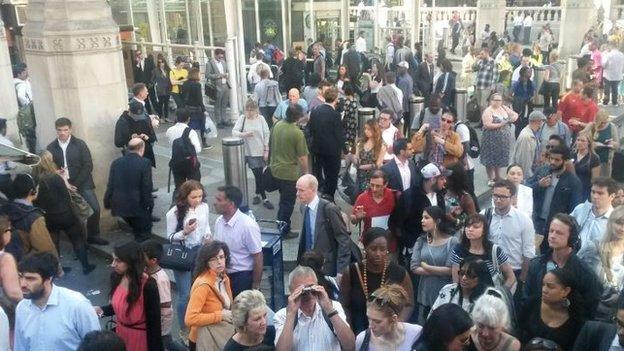Tube strike: Two more London Underground walkouts announced
- Published
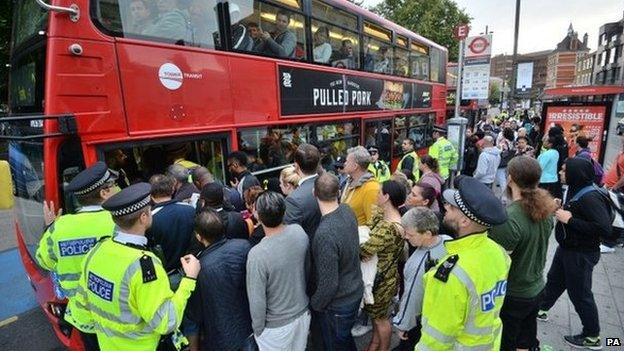
The strike on 6 August led to around 250 extra buses being laid on
London Underground workers will stage two more strikes in the dispute over night Tube plans, three unions said.
The 24-hour walkouts will begin at 18:30 BST on Tuesday 25 August and at 18:30 on Thursday 27 August.
Rail, Maritime and Transport (RMT), the Transport Salaried Staffs Association (TSSA) and Unite union members will strike about work-life balance and job cuts with September's night time tube.
The 24-hour service is set to be introduced on 12 September.
'Hell bent' on action
Station staff will strike from 18:30 each day and drivers from 21:00 in the protest, which follows two earlier strikes, on 6 August and on 8 July.
Disruption is likely to be felt from Tuesday evening until Friday night, owing to the knock-on impact of each strike to the service.
The train drivers' union ASLEF is yet to decide on the action it will take.
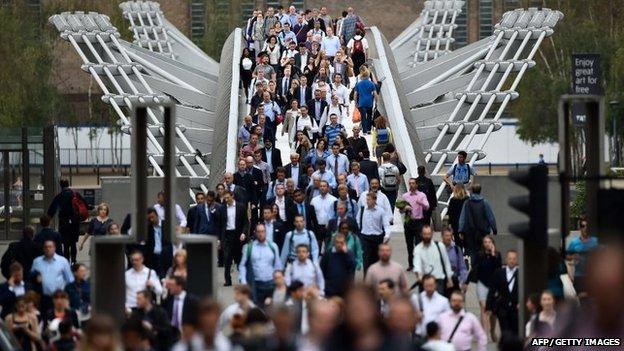
Commuters flocked across the river Thames on the Millennium footbridge in rush hour during the last strike

By Richard Westcott, Transport Correspondent. @BBCwestcott
It's interesting that the drivers' union, ASLEF, hasn't followed suit, just yet. I'm hearing that talks have been going better with ASLEF and they may just be able to do a deal that would sort out concerns over shift patterns.
Having said all that, negotiations could still collapse and ASLEF might well be joining the others in announcing strike dates, probably later this week. And I can't see drivers crossing picket lines anyway.
Resolution talks really haven't been going well in this dispute.
There's been a lot of anger and frustration on all sides. It's hard to pin down where it's all heading, although it seems likely that London Underground will have to postpone the start date for 24-hour tube services, which were meant to begin on 12 September.

A spokesman for Mayor of London Boris Johnson said: "The union leadership appear hell bent on strike action and the mayor is dismayed at their continued failure to put what is a fair, sensible and generous offer on the table to their members."
He said the workers were being offered an above-inflation pay rise, cash bonuses and the commitment no one would have to work more hours than they do today and that strike action was "completely unnecessary".
'Rosters from hell'
But Manuel Cortes at the TSSA said it was "time for the mayor to start getting his hands dirty and get down to serious direct negotiations" to avoid a week of disruption on the Tube.
He said: "He will blame the rail unions for the disruption but the travelling public will be asking why he has allowed these talks to drag on for six months while he refused to meet the union leaders themselves."
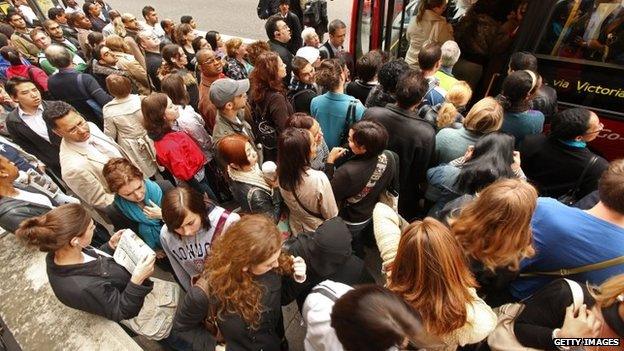
People crammed onto buses during July's strike
General secretary at the RMT Mick Cash said the union's members didn't want to be "forced to wreck their home lives in order to comply with the rosters from hell".
He said Tube staff were angry Mr Johnson had "ignored" their issues.
"Running tube services with fatigued and burnt-out staff is a recipe for disaster," he said.
Hugh Roberts at Unite said London Underground's (LU's) "vague assurances" about work-life balance and unsocial shifts did not give its members "the security they need to plan their home life over the long-term".
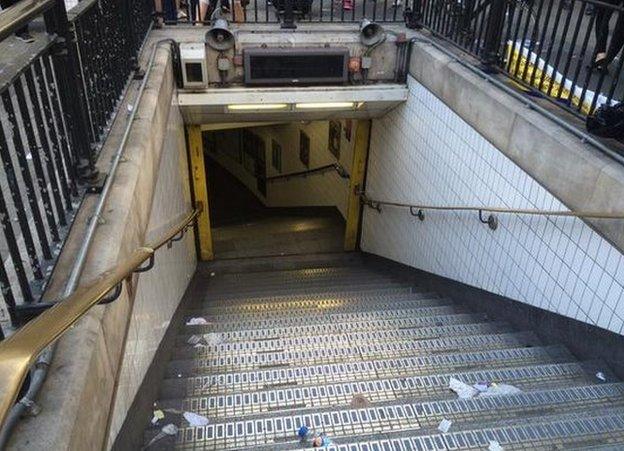
Oxford Circus Tube station entrance was empty during July's strike despite the crowds on the streets
He said: "If not enough people sign up for night shifts, what happens then? LU has made it clear that people will effectively be forced to work with its insistence that staff are contracted to work 24/7".
Not 'responsible'
Steve Griffiths, London Underground's chief operating officer, said the union had demanded the hiring of "even more staff" and wanted to reverse "modernisation of customer service" in Tube stations.
"They expect our customers to pick up a bill running into hundreds of millions of pounds for this through higher fares or by forcing us to cut back investment to improve Tube services in a rapidly growing city.
"No responsible management can give in to such demands," he added.
- Published6 August 2015
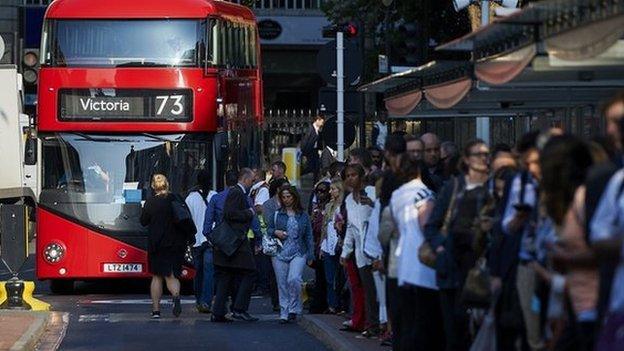
- Published8 July 2015
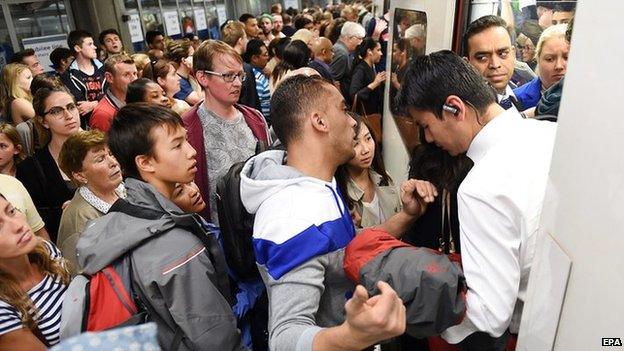
- Published9 July 2015
